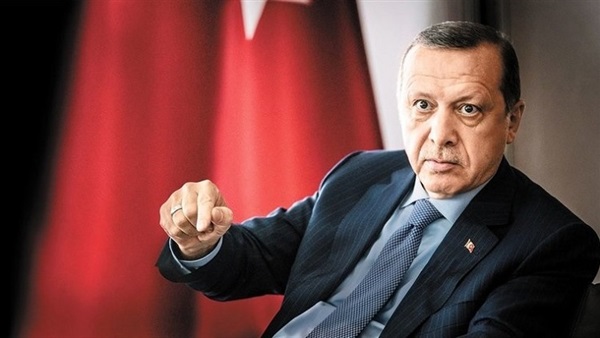In the midst of the battle in the Libyan capital, Tripoli, between the Libyan National Army forces and Turkey-backed Al-Wefaq militia, the Justice and Development Party in Turkey continues to pressure the parliament to speed up its meeting to discuss authorizing the dispatch of soldiers to Libya, which sparked a wave of political anger within the Turkish opposition parties.
The Turkish presidency transmitted to Parliament a memorandum allowing Ankara to deploy military personnel in Libya to support and support armed militias and the Al-Wefaq government, Faiz al-Sarraj, whose legitimacy was completely ended, and its ranks suffered heavy losses, and were defeated before the Libyan National Army forces, which made significant progress in military operations to chase the armed militias.
No country has agreed with Erdogan’s move toward military intervention in Libya, as many European countries, including Germany, Italy, Greece and Cyprus, have refused.
Amid continued tensions with Turkey…Egypt, Greece and Cyprus launched joint naval air military exercises “Medusa-9” to confront “potential threats” in the Mediterranean.
Indeed, Egypt, Greece and Cyprus started these maneuvers at a time when relations between the three countries that started in December 2019 witnessed gas exploration in waters in the Mediterranean Sea, which is considered part of the exclusive region of the Republic of Cyprus, amid widespread criticism from Cairo, Athens and Nicosia.
Turkish President Erdogan faces a growing wave of popular opposition, against the backdrop of developments in the scene in Libya, where politicians accused Erdogan more than once of risking the lives of Turkish soldiers.
The Turkish lawmakers are expected to approve the motion at the emergency session called for later in the day, and grant a one-year mandate for the deployment, despite concerns that Turkish forces could aggravate Libya’s conflict further and destabilize the region.
The Tripoli-based Government of National Accord (GNA) of Libyan Prime Minister Fayez Sarraj has faced an offensive by the rival Libyan National Army (LNA) and Eastern Libyan commander General Khalifa Haftar. The fighting has threatened to plunge Libya into violence rivaling the 2011 conflict that ousted and killed longtime dictator Moammar Gadhafi.
Turkey’s embattled President Recep Tayyip Erdogan announced last month plans to send troops to Libya in response to a request from the UN-recognized GNA, which is backed by a plethora of militias including groups linked to al-Qaeda.
Details of the possible Turkish deployment have not been revealed. The motion to be debated in parliament allows the government to decide on the scope, amount and timing of the deployment.
The visit of Erdogan to Tunisia caused great anger at the Tunisian presidency, and it was considered that Tunisia will not be a member of any coalition against Libya, and we will never accept that an inch of its soil be only under Tunisian sovereignty alone.
This came one day after the Turkish President Recep Tayyip Erogan’s visit to Tunisia, in which he announced the support of the Libyan reconciliation government, and the request of the Saraj government to send Turkish forces to Libya, which raised speculation about Tunisia’s participation in a military alliance with Turkey regarding Libya.








































admin in: How the Muslim Brotherhood betrayed Saudi Arabia?
Great article with insight ...
https://www.viagrapascherfr.com/achat-sildenafil-pfizer-tarif/ in: Cross-region cooperation between anti-terrorism agencies needed
Hello there, just became aware of your blog through Google, and found ...